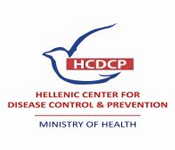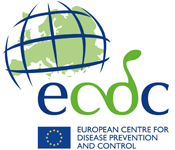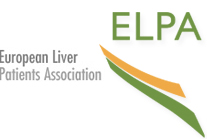CALL TO ACTION

HIGH-LEVEL MEETING
Economic Crisis and healthcare – ensuring access to public health services:
The case of hepatitis B and C
Under the auspices of the Greek EU Presidency
& the Greek Ministries of Health and of Foreign Affairs
Athens June 3-4, 2014. President Hotel
CALL TO ACTION
The Hepatitis B and C Public Policy Association aims to urge and facilitate the formulation of public policies at international and national level for the communication, prevention and management of viral hepatitis B and C. To further this aim, the Association works in partnership with major stakeholders, including patients, clinicians, public health and civil society communities, regulators and the private sector. The Hepatitis B and C Public Policy High Level Meeting brings together these stakeholders to discuss recent policy developments and agree on urgent priorities for action to tackle the public health, economic and social impact of hepatitis B and C.
Here in Athens, in June 2014, the Steering Group of the High Level Meeting on “Economic Crisis and healthcare – ensuring access to public health services: The case of hepatitis B and C”, of the Hepatitis B and C Public Policy Association, together with its partner associations,
Recalling:
- the WHO Sixty Seventh World Health Assembly adoption of a Resolution to improve the prevention, diagnosis and treatment of viral hepatitis, of May 22, 2014
- the WHO Guidelines for the screening, care and treatment of persons with hepatitis C infection, of April 2014,
- the WHO Call to Action to Scale Up Global Hepatitis Response, of March 2014,
- the WHO A67/13 Report by the Secretariat to the Sixty Seventh World Health Assembly, Improving the health of patients with viral hepatitis, of March 2014,
- the WHO Sixty Sixth World Health Assembly adoption of a Global Monitoring Framework for NCDs, of May 2013, and particularly Indicator 24, Vaccination coverage against hepatitis B virus monitored by number of third doses of Hep-B vaccine (HepB3) administered to infants,
- the WHO Prevention and Control of Viral Hepatitis Infection: Framework for Global Action, of 2012,
- the Call to Action of the Hepatitis B and C Public Policy Association Conference on Hepatitis B and C in Mediterranean and Balkan countries, of December 2012,
- the Call to Action of the Hepatitis B and C Public Policy Association Conference, of October 2010,
- the WHO WHA 63.18 Resolution on Viral Hepatitis, of May 2010,
Reaffirming the founding values of the European Union for respect for human dignity and human rights and aiming to protect and improve the well-being of the individual and the society, to protect public health and to take a balanced, integrated and evidence-based approach to managing viral hepatitis,
Respecting the principles set out in the Lisbon Treaty on the respective competences of the Union and individual Member States, with due regard to the principles of subsidiarity and proportionality,
Noting with deep concern that around 28 million people are currently living with chronic viral hepatitis and 120,000 people die every year because of viral hepatitis in WHO – EURO Region,
Underlining that over 80% of people with chronic hepatitis B or C are unaware of their infection and are at serious risk of developing cirrhosis or liver cancer,
Realizing that awareness and understanding of the challenge of hepatitis B and C is still limited amongst the general population, policy makers, health care workers and key populations,
Noting that lack of awareness and understanding combined with social stigma and discrimination further exacerbates barriers related to access to prevention, diagnosis and treatment services for those most in need,
Recognizing that the persisting economic crisis has impacted on public spending and more specifically on public health spending, thus posing challenges on the sustainable investment in health promotion, primary and secondary prevention, diagnosis and treatment of hepatitis B and C across all European countries and critically those most affected by viral hepatitis,
Agreeing that the impact of the economic crisis on aggravating existing barriers in the prevention, diagnosis and treatment of viral hepatitis needs to be managed effectively, measured consistently and evaluated carefully as a matter of health priority,
Stressing the importance of national hepatitis action plans on planning, coordinating the implementation, managing the cost, measuring the effectiveness and optimising the impact of activities related to the prevention, diagnosis and treatment of hepatitis B and C at the national level,
Urges EU Member States to address barriers to, and invest in, the sustainable, evidence-based funding of prevention, diagnosis and treatment of hepatitis B and C through coordinated national action plans as an urgent public health priority, notwithstanding the fiscal constraints and the persisting economic crisis.
More specifically, the Steering Group of the High Level Meeting of Athens, together with its partner associations, urges EU Member States to consider implementing specific policies and measures to:
- Address barriers related to evidence-based knowledge of hepatitis B and C
- Educate the general population, policy makers, health care workers and key populations on hepatitis B and C.
- Integrate surveillance indicators and strengthen national surveillance programs to measure hepatitis B and C and liver disease and inform on disease burden.
- Define, measure and publicise indicators related to the economic impact of hepatitis B and C and its treatment on national health systems to support evidence-based decision making and investment.
- Develop national action plans to tackle hepatitis B and C on the basis of validated country data (also through integrated patient registries).
- Measure the impact of interventions (outcomes and cost) to optimise future planning and resource allocation.
- Address barriers related to access to prevention, diagnosis and treatment services
- Achieve and maintain high coverage of universal, cost-effective neo-natal HBV vaccination (birth dose and primary immunization series).
- Scale up HBV vaccination of healthcare workers and other high risk groups.
- Scale up evidence-based harm reduction responses, including in prison settings, and access to HBV and HCV treatment for People Who Inject Drugs (PWID).
- Institute and sustain effective blood safety and the implementation of healthcare infection prevention and control measures.
- Develop testing and diagnosis protocols and guidelines and increase access to accurate, reliable, high – quality and affordable diagnostic tools including taking advantage of those programs developed for HIV diagnosis.
- Develop and implement screening programmes for all high-risk groups.
- Train health practitioners (particularly primary health care and nurses) to screen for those patients at high risk of hepatitis B and C and to test, diagnose, monitor and link them to care.
- Integrate care provision in general health services to develop networks to streamline access processes and effectively manage comorbidities to improve compliance to, and retention in, treatment.
- Develop, update and communicate treatment guidelines and adequately train and support prescribing physicians on how to use them.
- Ensure swift access to and sustainable funding for appropriate, safer, easier to administer and more effective, new medicines, particularly for hepatitis C, through active negotiation between member states and the pharmaceutical industry.
- Address barriers related to social stigma and discrimination
- Educate viral hepatitis patients on their rights and support patient advocacy and participation.
- Minimise communication barriers relative to native and spoken language(s) of high risk groups and communicate to overcome cultural beliefs and values that may impact on patient options.
- Encourage vulnerable groups to participate in screening, early detection and diagnosis programs.
- Link vulnerable groups to care and ensure non-stigmatising treatment is available to all, including, most critically, those outside the social insurance network.
- Educate health workers, policy makers, the general population and the media on how to overcome stigma against people living with or at risk of viral hepatitis.
- Cooperate on policies alternative to criminalisation for people living with or at risk of viral hepatitis.
Copyright 2014












